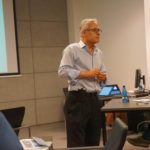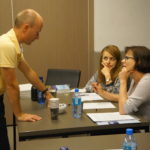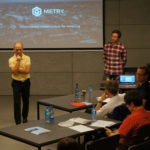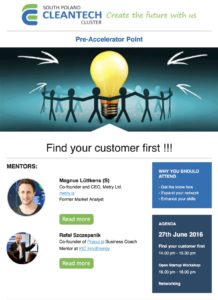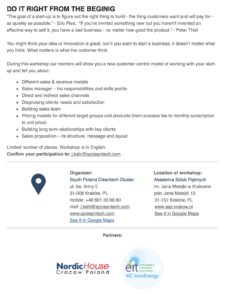SPCleantech as Pre-Accelerator Point for Polish startups organized on 27.06.2016 the third workshop “Find your customer first !!!” of the series of 6 workshops and 2 conferences. The aim of the workshop was to provide experiences of Polish and Scandinavian mentors to Polish start-ups and coaches. SPCleantech is working with a group of experienced mentors from Denmark, Finland and Sweden.
“The goal of a start-up is to figure out the right thing to build – the thing customers want and will pay for – as quickly as possible.” – Eric Ries, “If you’ve invnted something new but you haven’t invented an effective way to sell it, you have a bad business – no matter how good the product.” – Peter Thiel
You might think your idea or innovation is great, but if you want to start a business, it doesn’t matter what you think. What matters is what the customer think.
During this workshop our mentors presented a new customer-centric model of working with start-ups and told about:
- Different sales & revenue models
- Sales manager – his responsibilities and skills profile
- Direct and indirect sales channels
- Diagnosing clients needs and satisfaction
- Building sales team
- Pricing models for different target groups and products (from success fee to monthly subscription to unit price)
- Building long term relationships with key clients
- Sales proposition – its structure, message and layout
There was limited number of places. Workshop was in English.
Special guests during the workshop were Rafał Szczepanik (PL) and Magnus Lüttkens (S).
Rafał Szczepanik-CV CV-Magnus Lüttkens.se 3. workshop




